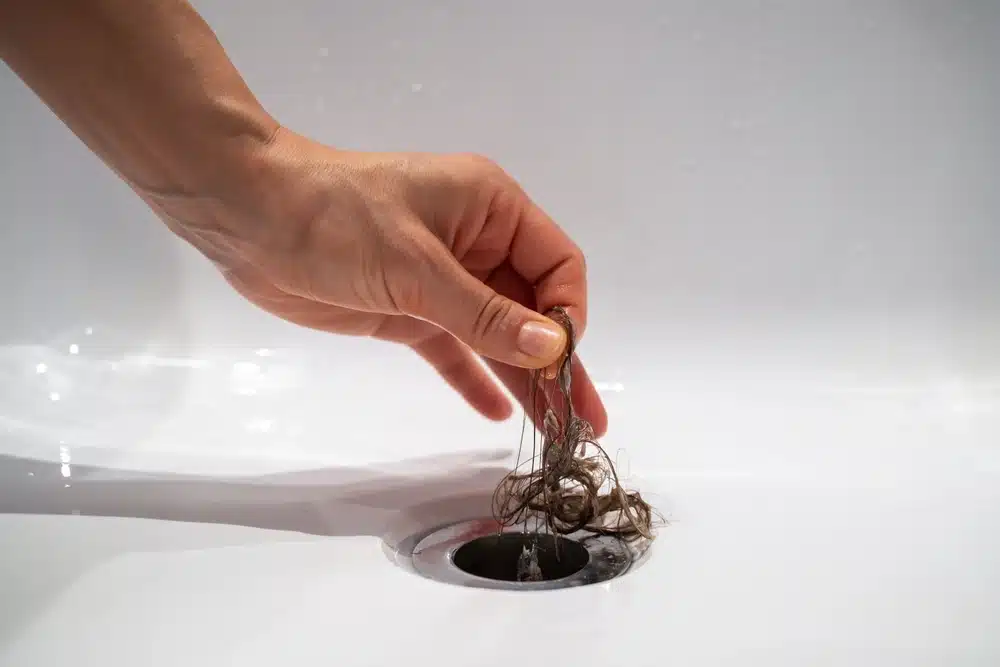Throughout life, you’ll notice constant changes to the body – and to the hair. From time to time you might notice hair fall, this can happen for a number of different reasons.
Today, we’re focusing on menopause and how it can change your hair over time.
What is Menopause?
Menopause is identified as the time women end their last menstrual cycle and is typically diagnosed after a full year without a period. This natural biological process causes fluctuating hormones in the body which can result in unpleasant symptoms as your body attempts to adjust. The typical age menopause occurs is around 50 years old.
Other Symptoms of Menopause
The time before menopause is called perimenopause, and it is usually accompanied by various symptoms including:
- Irregular or loss of period
- Hot flashes
- Chills
- Cold sweats
- Issues sleeping
- Mood swings
- Weight gain
- Hair loss or thinning
Menopause and Hair Loss
Female hair loss or hair thinning is extremely common when going through perimenopause and menopause. Your body is experiencing a reduction of hormones such as estrogen and progesterone, both of which are associated with hair growth. The decrease of these hormones not only causes hair thinning by not allowing your hair to grow as fast or stay attached as long, but it also stimulates a growth in androgen. Androgens are male hormones that cause hair follicles on the head to shrivel and may cause an increase in hair development on the face.
How to Prevent Thinning Hair during Menopause
Prevent rather than treat
Hair loss is most easily managed when caught early. Luckily, female patterned baldness typically prevents itself more evenly as a general thinning of the hair, rather than the obvious bald spots we see in males. If you notice your hair thinning at all, start preventative measures early before it becomes too big of a problem.
Protein can help
Eating a good diet, and trying to consume a more protein-rich diet can aid in the prevention of hair loss. High-protein foods include meat, eggs, cottage cheese, Greek yoghurt, beans, and nuts. You can also ask a hair loss specialist about keratin treatments and protein-enriched hair products, which, for some can help strengthen the hair you have.
Protect your Hair
Hair thinning can be expedited by the daily abuse our hair endures from sun exposure, heat tools, hair products containing harsh chemicals, and hair dye. Try to avoid these behaviours or protect your hair using heat protectants.
Medications or Hormone Therapy
If your hair loss is very severe it may be a time to explore hair loss medication options. Hormone therapy is also an option since menopausal hair loss is caused by a hormone imbalance.
If you are currently suffering from hair loss, please contact us today. One of our doctors will invite you in for a no-obligation consultation where you can discuss hair loss as well as hair restoration options that may be able to help you.


